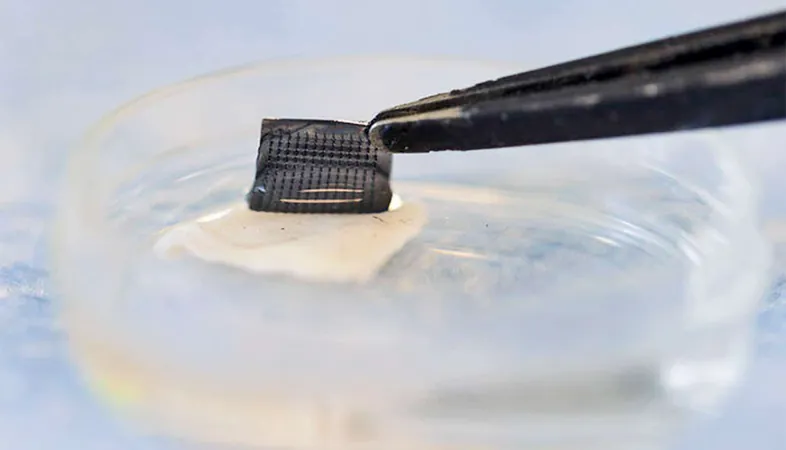
Revolutionary Findings: De-escalation of Antiplatelet Therapy After Heart Surgery Reduces Bleeding Risks!
2025-09-01
Author: Yu
Breaking New Ground in Heart Surgery Recovery
In a groundbreaking study from the ESC Congress 2025 in Madrid, researchers have unveiled a significant revelation about antiplatelet therapy for patients recovering from coronary artery bypass grafting (CABG). While standard dual antiplatelet therapy (DAPT) is known to deter graft failure, it also raises alarming concerns regarding clinically relevant bleeding. But what if there’s a better way?
The TOP-CABG Trial: Key Insights Uncovered
The TOP-CABG trial took a deep dive into this pressing issue by comparing 12 months of traditional DAPT with a new approach: de-escalated DAPT. This innovative strategy involves administering DAPT for just 3 months, followed by aspirin monotherapy for the remaining 9 months. The trial revealed promising findings; graft occlusion rates were comparable, yet the de-escalated strategy dramatically reduced the frequency of serious bleeding events.
A Closer Look at Saphenous Vein Grafts
Saphenous vein grafts, often used in CABG, have notoriously high failure rates—up to 25% within the first year post-surgery. Doctor Xin Yuan, a key investigator from the State Key Laboratory of Cardiovascular Disease in Beijing, noted that while longer-term DAPT can decrease these failure rates, the trade-off comes in the form of heightened bleeding risks. This dilemma has motivated researchers to explore more optimized treatment regimens.
Study Details: A Major Step Forward
Conducted across 13 hospitals in China, the TOP-CABG trial involved 2,290 patients aged 18 to 80 undergoing their first CABG with at least one saphenous vein graft. Patients were randomly assigned to either the de-escalated DAPT or the standard DAPT regimen. Researchers tracked graft occlusion rates and clinically relevant bleeding events for a full year following surgery.
Promising Results: A Game-Changer for Healthcare
The results were striking: Graft occlusion rates were nearly identical—10.79% for de-escalated DAPT and 11.19% for the standard approach. However, occurrences of clinically relevant bleeding were notably less in the de-escalated group (8.26% vs. 13.19%), representing a 38% reduction in bleeding risk!
Implications for Future Treatment Guidelines
Doctor Yuan emphasizes the importance of these findings, remarking that this trial, the largest of its kind to date, presents a compelling case for adjusting treatment guidelines for post-CABG care. By opting for a shorter duration of DAPT, healthcare providers could potentially enhance patient outcomes while minimizing bleeding complications.
The Takeaway: Hope for Heart Patients
As heart health strategies evolve, the revelations from the TOP-CABG trial pave the way for a more balanced approach to recovery from heart surgery. With less bleeding and equal efficacy in graft protection, this de-escalated strategy offers new hope to patients and healthcare providers alike. Stay tuned for updates as these findings continue to shape the future of cardiac care!




 Brasil (PT)
Brasil (PT)
 Canada (EN)
Canada (EN)
 Chile (ES)
Chile (ES)
 Česko (CS)
Česko (CS)
 대한민국 (KO)
대한민국 (KO)
 España (ES)
España (ES)
 France (FR)
France (FR)
 Hong Kong (EN)
Hong Kong (EN)
 Italia (IT)
Italia (IT)
 日本 (JA)
日本 (JA)
 Magyarország (HU)
Magyarország (HU)
 Norge (NO)
Norge (NO)
 Polska (PL)
Polska (PL)
 Schweiz (DE)
Schweiz (DE)
 Singapore (EN)
Singapore (EN)
 Sverige (SV)
Sverige (SV)
 Suomi (FI)
Suomi (FI)
 Türkiye (TR)
Türkiye (TR)
 الإمارات العربية المتحدة (AR)
الإمارات العربية المتحدة (AR)